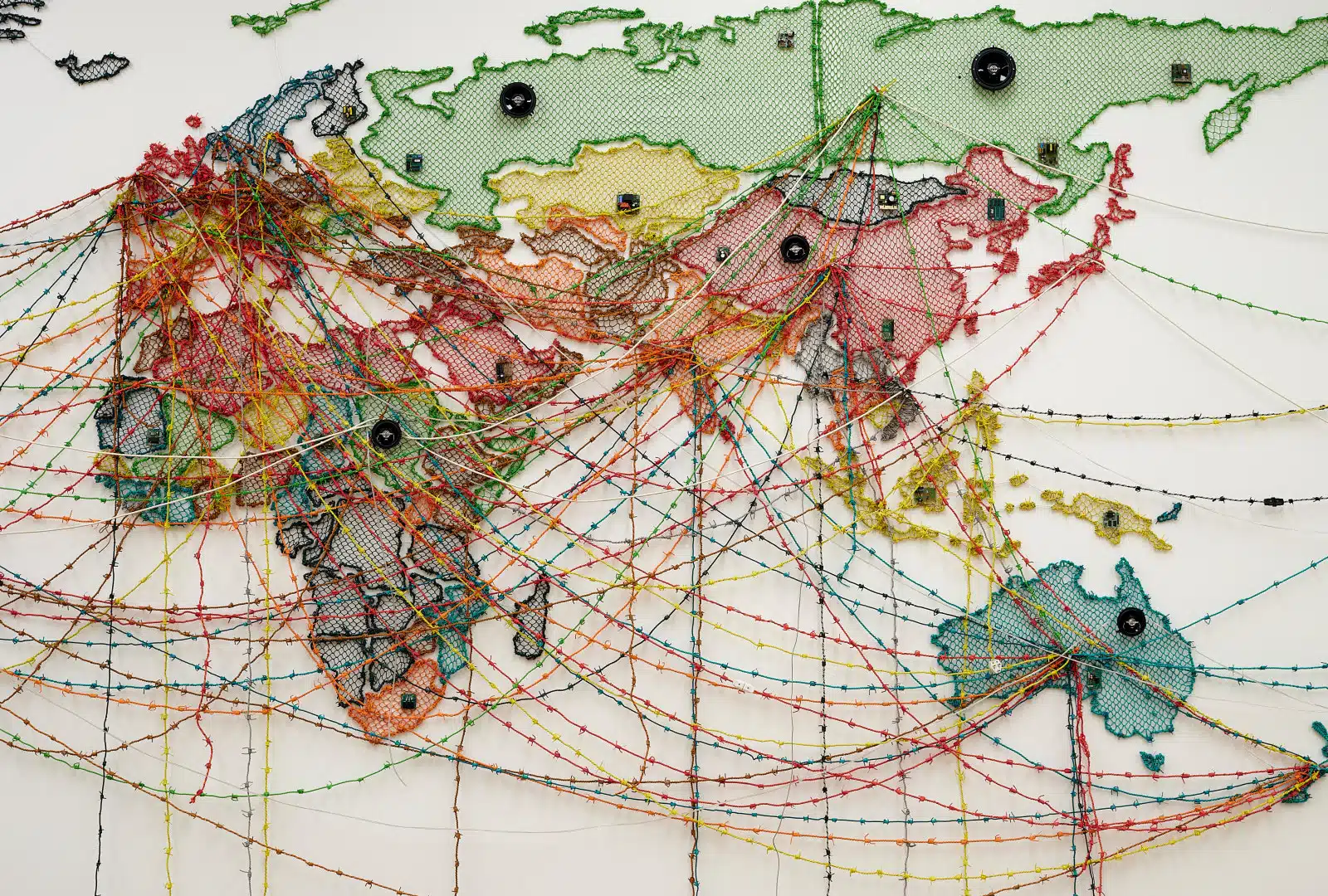Some of the world’s most influential museum directors come together to discuss the role of arts institutions in catalysing change. Director of the Museum of Art & Photography (MAP) Bengaluru, Kamini Sawhney, Director of the Neue Nationalgalerie, Klaus Biesenbach, CEO and Wallis Annenberg Director at the Los Angeles County Museum of Art (LACMA), Michael Govan, Director and Chief Curator of the Kiran Nadar Museum of Art (KNMA), Roobina Karode, and Director of the Dr. Bhau Daji Lad Museum, Tasneem Zakaria Mehta talk decolonisation, inclusivity, partnerships and more with moderator Deepanjana Klein, Director of Acquisitions and Development, KNMA.
Generously supported by JSW and curated by researcher and arts manager, Priya Chauhan, ART ACROSS —— celebrates the power of critical dialogue and the critical need for celebrating the arts. Spanning key issues in art, design and architecture from a variety of perspectives including from institutions, market experts, philanthropists and creatives, the series aims to foster an inclusive platform to explore contemporary culture, with South Asia at its centre. All talks will also be conducted in Indian Sign Language.
Kamini Sawhney: As the Museum of Art & Photography’s (MAP) founding Director, Kamini Sawhney has brought together a young, inspired team that is focused on creating a new museum experience for audiences in India. She has helped shape a vision for MAP that seeks to democratize art through an accessible, inclusive space where everyone feels welcome. Sawhney spearheaded the earlier launch of MAP as a digital first museum in December 2020, at the height of the pandemic, enabling MAP to connect with audiences across the world and showcase its collection through a series of online exhibitions, learning and outreach. Her virtual programme – The Director’s Cut – is a fireside chat with some of the leading names in the art world including Tristram Hunt of the V&A, Cecilia Alemani, Curator of the Venice Biennale, 2022, Tom Campbell, Director, Fine Arts Museums, San Francisco and Victoria Noorthorn, director of Museo Moderno, Buenos Aires. Elected to the Board of CIMAM(International Committee for Museums and Collections of Modern Art) last year, Sawhney is the first Indian to hold that position and hopes to reflect the views and challenges of the global South through this forum. In her earlier role, Kamini was the head of the Jehangir Nicholson Art Foundation – one of the premier private collections of Modern Indian Art, at the CSMVS, Mumbai, formerly known as the Prince of Wales Museum. Bringing institutions together in collaborative projects has been one of her special skills enabling audiences in India the opportunity to enjoy several exhibitions in collaboration with Tate, London, Foam, Amsterdam, and the Duke University, Durham.
Klaus Biesenbach: Klaus Biesenbach is a German American curator and museum director. Since January 2022 Klaus Biesenbach is the Director of the Neue Nationalgalerie with Berggruen Museum and Scharf-Gerstenberg Collection, as well as the berlin modern under construction in Berlin. Previously, he had been serving as the director of The Museum of Contemporary Art, Los Angeles (MOCA), from 2018 to 2021. He is also a former Chief Curator at Large at The Museum of Modern Art in New York City and former director of MoMA PS1. Biesenbach is also the founding director of Kunst-Werke Institute for Contemporary Art (KW) in Berlin, and the Berlin Biennale.
Michael Govan: Michael Govan is the CEO and Wallis Annenberg Director of the Los Angeles County Museum of Art (LACMA). Since coming to LACMA in 2006, he has overseen the transformation of the 20-acre campus with buildings by Renzo Piano and monumental artworks by Chris Burden, Michael Heizer, Robert Irwin, Barbara Kruger, and others. At LACMA, Govan has pursued his vision of contemporary artists and architects interacting with the museum’s historical collections, as evidenced by exhibition and gallery designs as well as programming in collaboration with artists and architects. Currently, the museum is in the process of building a new, state-of-the-art permanent collection building designed by Pritzker Prize–winning architect Peter Zumthor.
Roobina Karode: Roobina Karode is the director and chief curator of the Kiran Nadar Museum of Art. Roobina has been in charge of the museum’s operations since KNMA first opened its doors in 2010, striving to create a welcoming environment that draws a large and consistent audience. At the museum, she has organized over twenty-five significant exhibitions and continues to curate seminal exhibitions of South Asian art across the globe.
Tasneem Zakaria Mehta: Tasneem Zakaria Mehta is an art historian, curator, designer, conservationist, and cultural activist. She is the Managing Trustee and Director of Dr Bhau Daji Lad Museum, Mumbai and former Vice Chairman and Mumbai Convenor of INTACH. She has successfully pioneered the revival and restoration of several cultural sites in Mumbai. She conceptualized, curated, designed and implemented the restoration and revitalization of the Museum, which won UNESCO’s 2005 Asia Pacific Award of Excellence for Cultural Restoration. She has written and edited several articles and books on art and culture. Her latest book – ‘Mumbai- A City Through Objects’, 101 stories from the Dr Bhau Daji Lad Museum’ was co-published by Harper Design and released in May 2022 to mark the Museum’s 150th Anniversary, has won several awards including Art Book of the Year.
Deepanjana Klein: Dr. Deepanjana Klein is the Director of Acquisitions and Development at the Kiran Nadar Museum of Art. Deepanjana has a Ph.D. in Indian Art History from De Montfort University in England. She is the recipient of several awards, including a grant from the Mellon Foundation (ArtStor) for her photographic documentation of the Ellora Cave temples and is currently working on her book on the Ellora Caves.


